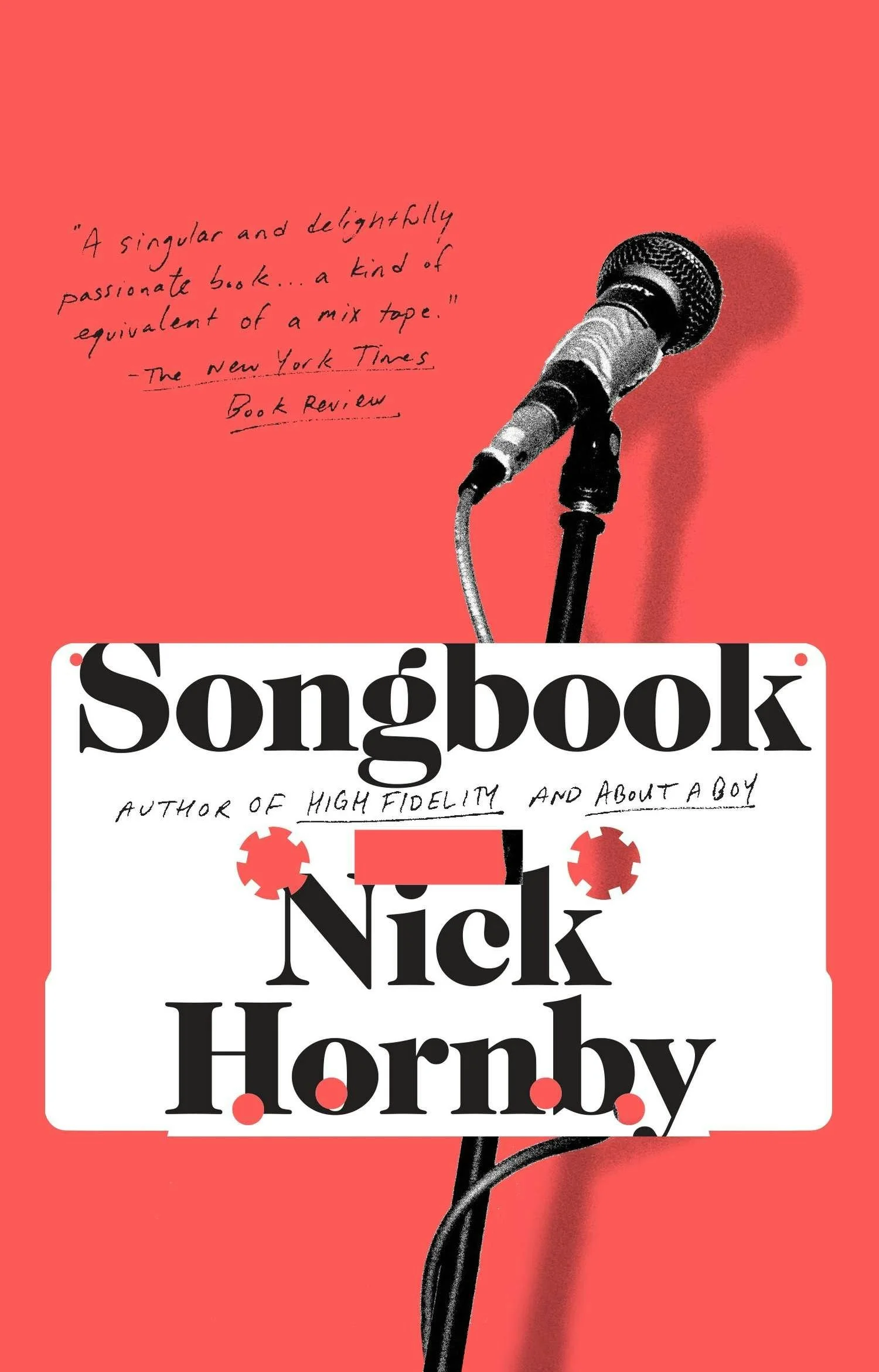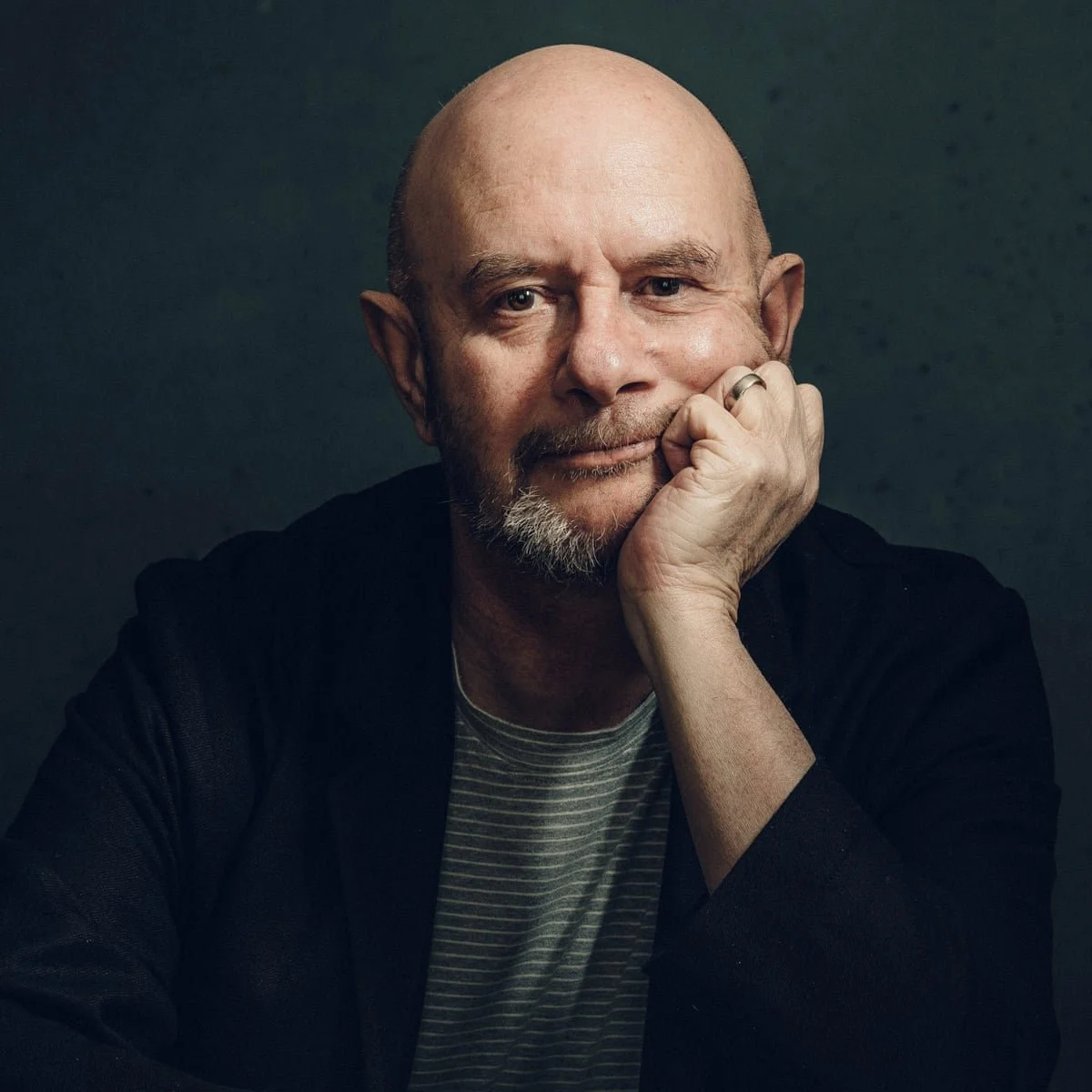If you twisted my arm and asked me to name my favorite writer, I would probably ask why you were twisting my arm — plus, it would be difficult to whittle it down to just one. I could, however, give you a short list. And, if you allowed it, I would tell you that Nick Hornby, without question, will forever have a place on my ever-shifting short list of favorite writers.
But, ironically enough, that’s not why I’ve chosen Nick Hornby as the inaugural author featured in “Books That Aren’t Mine.” However much I love Hornby’s novels—and, to be clear, they’re up there with pizza and video games—it was actually one of his non-fiction books that inspired not only this blog post, but also this entire section of Inside Martin. The book in question is Songbook, which is a collection of essays written by Hornby about his favorite songs and why he loves them.
In the opening essay, “Your Love Is the Place Where I Come From,” which is based on the song by Teenage Fanclub, Hornby introduces the reader to the spirit of Songbook:
"Songs are what I listen to, almost to the exclusion of everything else. I don’t listen to classical music or jazz very often, and when people ask me what music I like, I find it very difficult to reply, because they usually want names of people, and I can only give them song titles. And mostly all I have to say about these songs is that I love them, and want to sing along to them, and force other people to listen to them, and get cross when these other people don’t like them as much as I do…"
—Nick Hornby, Songbook
In all, Hornby writes essays about 31 songs in Songbook. I recognized a few of the recording artists he was writing about, such as The Beatles and Ani DiFranco, but, with few exceptions, I hadn’t a clue what these songs were or if I’d ever heard them before. And that is, perhaps, the best compliment I can give this book, because, despite my ignorance to the songs Hornby writes about, I loved reading every essay in Songbook. And not because I was learning anything particularly interesting about music—which, on the whole, I wasn’t—but rather because I was learning about this interesting person who is really passionate about the music he loves and incredibly engaging when articulating why.
In the essay “Thunder Road,” which is based on the song by Bruce Springsteen, Hornby writes:
"So, even though I’m not American, no longer young, hate cars, and can recognize why so many people find Springsteen bombastic and histrionic (but not why they find him macho or jingoistic or dumb—that kind of ignorant judgment has plagued Springsteen for a huge part of his career, and is made by smart people who are actually a lot dumber than he has ever been), "Thunder Road" somehow manages to speak for me. This is partly—and perhaps shamingly—because a lot of Springsteen’s songs from this period are about becoming famous, or at least achieving some kind of public validation through his art…"
—Nick Hornby, Songbook
While passages like the above excerpt exist in Songbook, I find many of my favorite passages are the ones where he writes about his life and his career and his family, all in conjunction with some song that, somehow or another, threads them all together like a musical candy necklace.
In “Puff the Magic Dragon,” a particularly moving essay about Danny, his autistic son, Hornby writes:
"If it’s true that music does, as I’ve attempted to argue elsewhere, serve as a form of self-expression even to those of us who can express ourselves tolerably well in speech or in writing, how much more vital is it going to be for [Danny], when he has so few other outlets? That’s why I love the relationship with music he has already, because it’s how I know he has something in him that he wants others to articulate. In fact, thinking about it now, it’s why I love the relationship that anyone has with music: because there’s something in us that is beyond the reach of words, something that eludes and defies our best attempts to spit it out."
—Nick Hornby, Songbook
Just as Hornby feels an intimate connection with the music he loves, I feel a similarly intimate connection with the books that I love. And, also like Hornby, many of the connections I feel with my favorite books have little or nothing to do with the stories being told, but rather what was happening in my life when I read them or, more importantly, how they changed my life or my perception of the world.
Without much effort, I could rattle off any number of books I have great affection for—The Jungle by Upton Sinclair, Still Life With Woodpecker by Tom Robbins, Insomnia by Stephen King, The Things They Carried by Tim O’Brien, to name a few—and I could just as easily tell you exactly why I love those books, even if I can’t remember the name of the main characters or properly summarize the plot. And, ultimately, that’s exactly what “Books That Aren’t Mine” is for. It’s an opportunity for me to pay homage to the books that affected my life, while also painting a picture of the life they affected.

